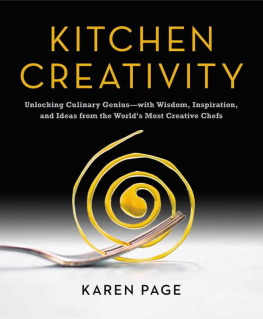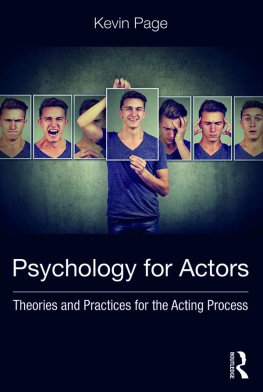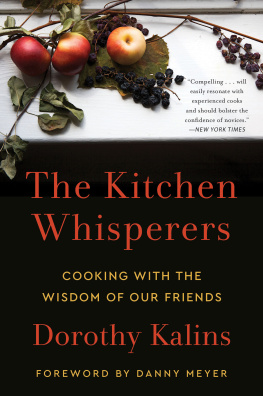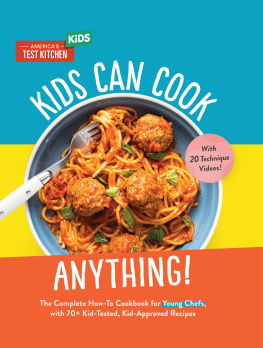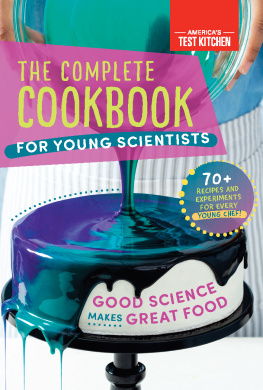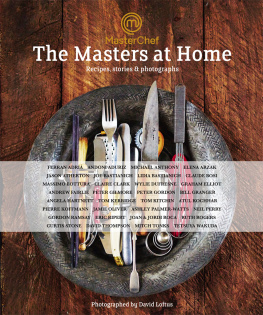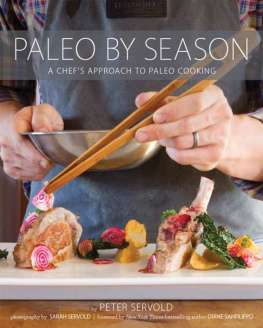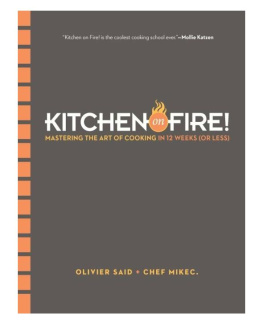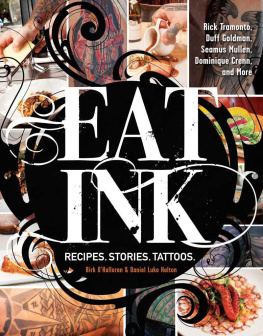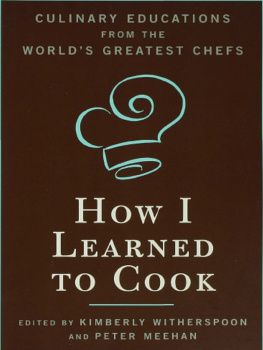Hachette Book Group supports the right to free expression and the value of copyright. The purpose of copyright is to encourage writers and artists to produce the creative works that enrich our culture.
The scanning, uploading, and distribution of this book without permission is a theft of the authors intellectual property. If you would like permission to use material from the book (other than for review purposes), please contact permissions@hbgusa.com. Thank you for your support of the authors rights.
Little, Brown and Company is a division of Hachette Book Group, Inc. The Little, Brown name and logo are trademarks of Hachette Book Group, Inc.
The publisher is not responsible for websites (or their content) that are not owned by the publisher.
The Hachette Speakers Bureau provides a wide range of authors for speaking events. To find out more, go to hachettespeakersbureau.com or call (866) 376-6591.
WHY CREATIVITY MATTERS
Food is our common ground, a universal experience.
JAMES BEARD
Creativity is a central source of meaning in our lives Most of the things that are interesting, important, and human are the results of creativity.
MIHALY CSIKSZENTMIHALYI,
positive psychologist and bestselling author of Creativity and Flow
The only thing as fundamental as food to our livesour pleasure as well as our survivalis creativity. We must eat to live, but our ingenuity in generating solutions is arguably the single most important ability human beings possess.
This is true not only personally but professionally. Creativity was cited by 60 percent of CEOs polled as the single most important leadership quality for success in business, ahead of even integrity (52 percent) and global thinking (35 percent), according to a study cited in Fast Company . Only one in four people believes they are living up to their creative potential, according to a 2012 Adobe study.
Beyond being a tool for survival and a source of meaning, the act of creation is a source of meaning that can bring us our greatest joys.
During graduate school, my then-boyfriend, Andrew, was working in the restaurant businesswhich I made the focus of my independent studies. I was fascinated by restaurants, and especially by professional chefs, whom I saw as unique hybrids of artists, entrepreneurs, and activists. By the late 1980s, I came to recognize the emerging cultural importance of chefs as among the most influential creative professionals of our time. This inspired me to radically change my life path to study chefs and their work in depth. My obsession was so all-encompassing, I even married one.
As I interacted with the worlds leading chefs, I saw brilliance. I tasted genius. I sensed mystery. Among the most remarkable gifts of great chefs, I discovered, is exceptional sensory acuityextraordinary senses of taste and smell, to be sure, but also finely honed senses of touch, sight, and hearing. New Orleans chef Susan Spicer shared:
Ive really developed my eyes so that I can look at something three feet away and say that needs rinsing off or that doesnt look fresh to me. I know when someone puts something in a saut pan and it doesnt make a noise that the pan wasnt hot enough. I listen when someone is chopping an onion and its going crunchI know without looking that that person needs to sharpen their knife. I listen when Im making a sauce in a blender, and I know if the sauce has broken by the sound.
But in addition to developing these powers of sensory perception, there seemed to be something more going onsomething Andrew and I were at a bit of a loss to describe in our first book. We wrote in Becoming a Chef (1995):
An experienced chefs greatness is often evidenced by his or her development of a sixth sense when it comes to cooking, and many of the chefs we interviewed alluded to this ability in some regard. Over time, they have developed the ability to cook at a more intuitive level, for lack of a better description.
We referred to leading chefs extrasensory perception, which allowed them to taste with their other senses.
Even at that time, it was clear that there were forces at work beyond our full comprehension that resulted in leading chefs extraordinary talents in the kitchen. Their experiences had honed not only their five outer senses. I came to believe the very best to be masters of their inner sensestheir ability to see without actually seeing, to smell without actually smelling, to taste without actually tasting, and to bring an extraordinary breadth, depth, precision, immediacy, and intensity of perception to their cooking that I hadnt known was possible.
Besides the five senses and the central sense, Aristotle recognizes other faculties [including imagination] that later came to be grouped together as inner senses.
from the book Ancient Philosophy , edited by Brian Duignan
Philosophers, starting with Aristotle, have enumerated and characterized the inner senses differently. However, centuries later, the concept of inner senses serves as a metaphor for the interior capabilities that allow us to perceive that which is too subtle to be grasped by the outer senses. Simply put, they suggest direction for our creative attention, energy, and will.
Sense data alone do not produce insight or understanding of any kind. Ideas produce insight and understanding, and the world of ideas lies within us.
Inner individual authentic perception is the only source of real knowledge.
E.F. SCHUMACHER,
A Guide for the Perplexed
Chefs may be the most perceptive professionals I have encountered. They can learn to harness their inner senses to fuel extraordinary creativity in the kitchen. This book shares the secrets of tapping those inner sensesas well as marshalling the power of finely honed outer senses. This one-two punch can unlock your abilities as a cook to perform kitchen alchemyturning common ingredients into something precious. Even now, knowing many chefs secrets, it still strikes me as magical.

